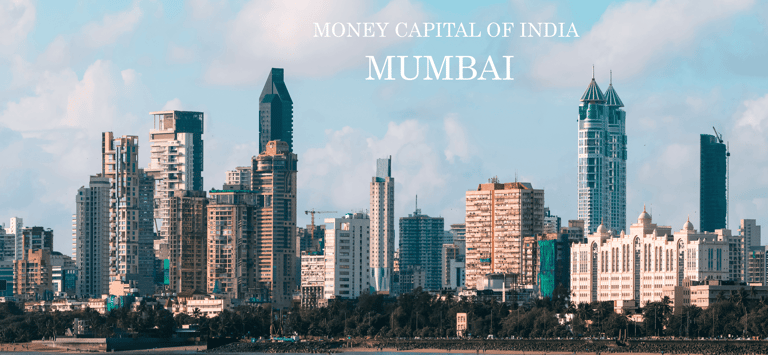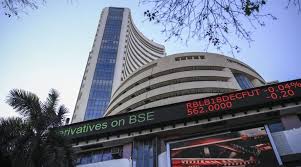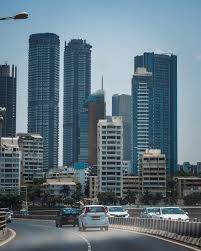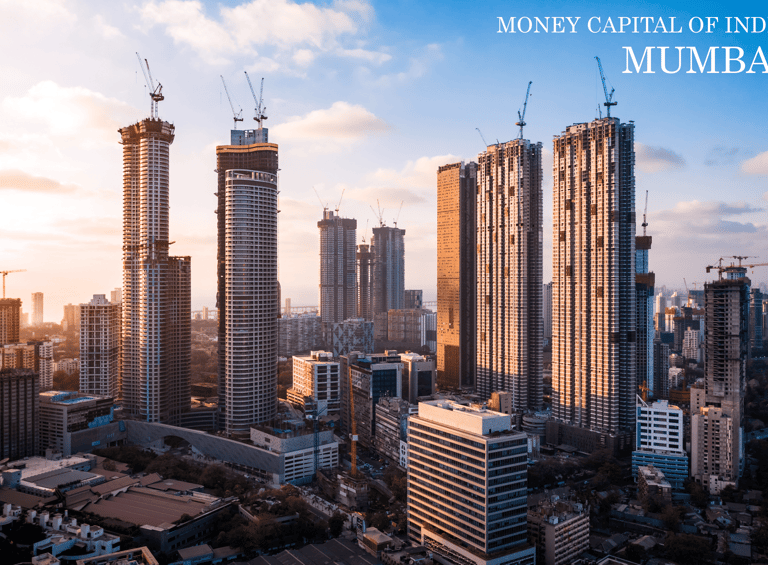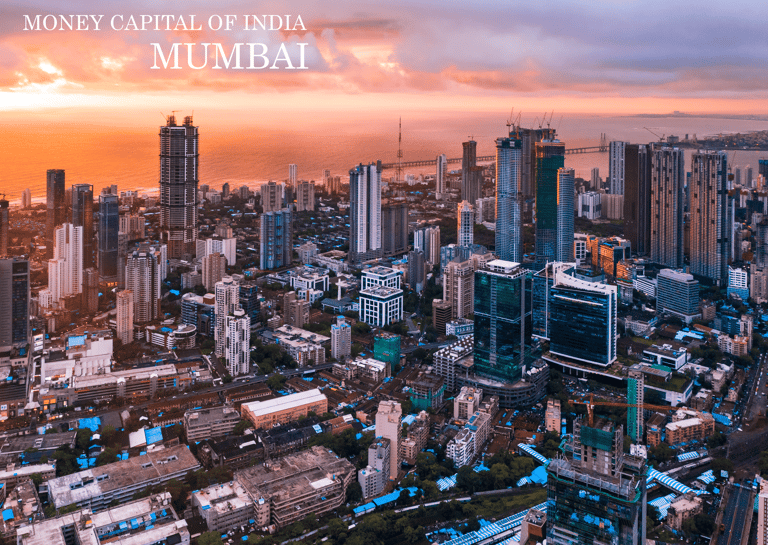MUMBAI the Money Capital of INDIA
Mumbai, the capital city of Maharashtra, is widely recognized as the financial capital of India. This status is attributed to its significant contributions to the nation's economy, housing major financial institutions, and serving as a hub for various industries. Hyderabad, the capital of Telangana, has also emerged as a prominent economic center, experiencing rapid growth across multiple sectors. This article explores Mumbai's role as India's financial nucleus and examines Hyderabad's position in the country's economic landscape.
FLIXAH DEVELOPERS PVT LTD
3/19/20254 min read
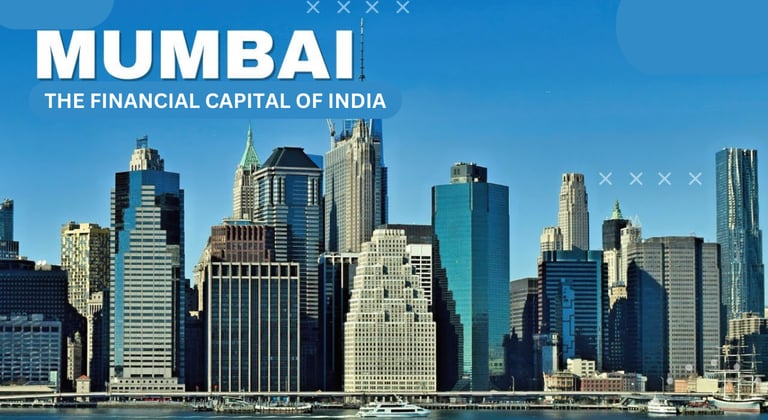

MUMBAI the Money Capital of INDIA
Mumbai, the capital city of Maharashtra, is widely recognized as the financial capital of India. This status is attributed to its significant contributions to the nation's economy, housing major financial institutions, and serving as a hub for various industries. Hyderabad, the capital of Telangana, has also emerged as a prominent economic center, experiencing rapid growth across multiple sectors. This article explores Mumbai's role as India's financial nucleus and examines Hyderabad's position in the country's economic landscape.
Mumbai: The Financial Powerhouse of India
Mumbai's designation as the financial capital stems from several key factors:
Economic Contribution: Mumbai contributes approximately 6.16% to India's total GDP, with a Gross State Domestic Product (GSDP) of around ₹7.17 trillion (US$86 billion). The city accounts for about 25% of the country's industrial output and handles 70% of its maritime trade.
Financial Institutions: The city is home to major financial institutions, including the Reserve Bank of India (RBI), the Bombay Stock Exchange (BSE), and the National Stock Exchange (NSE). The BSE, established in 1875, is Asia's oldest stock exchange, while the NSE, founded in 1992, is among the world's largest by market capitalization.
Corporate Presence: Mumbai hosts the headquarters of numerous Indian conglomerates and multinational corporations, such as Tata Group, Reliance Industries, and Godrej. This concentration of corporate entities reinforces the city's status as a commercial hub.
Tax Revenue: The city contributes significantly to India's tax revenue, accounting for approximately 30% of income tax collections.
Diverse Economy: Beyond finance, Mumbai's economy encompasses sectors like textiles, information technology, petrochemicals, automobile manufacturing, and entertainment. The city is also the heart of Bollywood, India's prolific film industry.
Hyderabad: A Rising Economic Star
While Mumbai holds the title of financial capital, Hyderabad has been making remarkable strides as an economic powerhouse:
Economic Growth: Hyderabad's Gross Domestic Product (GDP) was recorded at US$50.6 billion in 2018 and is projected to reach US$201.4 billion by 2035, reflecting a year-on-year growth rate of 8.47%.
Sectoral Diversification: The city's economy is diversified across information technology, pharmaceuticals, biotechnology, and manufacturing. The IT sector, centered in areas like HITEC City and Gachibowli, hosts major global companies such as Microsoft, Google, and Amazon.
Real Estate Boom: Hyderabad has experienced significant growth in its real estate market, with a 10% Compound Annual Growth Rate (CAGR) in residential launches over the past decade. In 2023 alone, residential prices surged by 11%.
Infrastructure Development: Investments in infrastructure, including the expansion of the Hyderabad Metro Rail and the development of ring roads, have enhanced connectivity and spurred economic activities.
Quality of Life: Hyderabad has been consistently recognized for its high quality of living. In 2023, it was rated as the best Indian city to live in, according to Mercer's Quality of Living survey.
Affordability: Despite its rapid growth, Hyderabad remains relatively affordable. The city's affordability index has remained steady at 30% since 2022, indicating that households spend 30% of their income on housing loan EMIs.
Startup Ecosystem: Hyderabad is emerging as a significant player in India's startup landscape. While Delhi has overtaken Bengaluru as the startup capital, Hyderabad's supportive policies and infrastructure are fostering a vibrant startup ecosystem.
Comparative Analysis
While Mumbai continues to be the financial epicenter of India, Hyderabad's rapid growth and diversification have positioned it as a formidable economic force. Mumbai's established financial infrastructure and corporate presence make it indispensable to India's economy. In contrast, Hyderabad's strategic investments in technology, infrastructure, and quality of life have attracted businesses and talent, contributing to its ascending economic trajectory.
In conclusion, Mumbai's role as India's financial capital is well-established, with its deep-rooted financial systems and significant economic contributions. Hyderabad, on the other hand, exemplifies a dynamic and evolving economic landscape, with its impressive growth and diversification across various sectors. Both cities play pivotal roles in shaping India's economic future, each contributing uniquely to the nation's prosperity.
FOR MORE INFO and related news please visit our website flixahdeveloperspvtltd.com
and follow us
you an call us @9129992994


